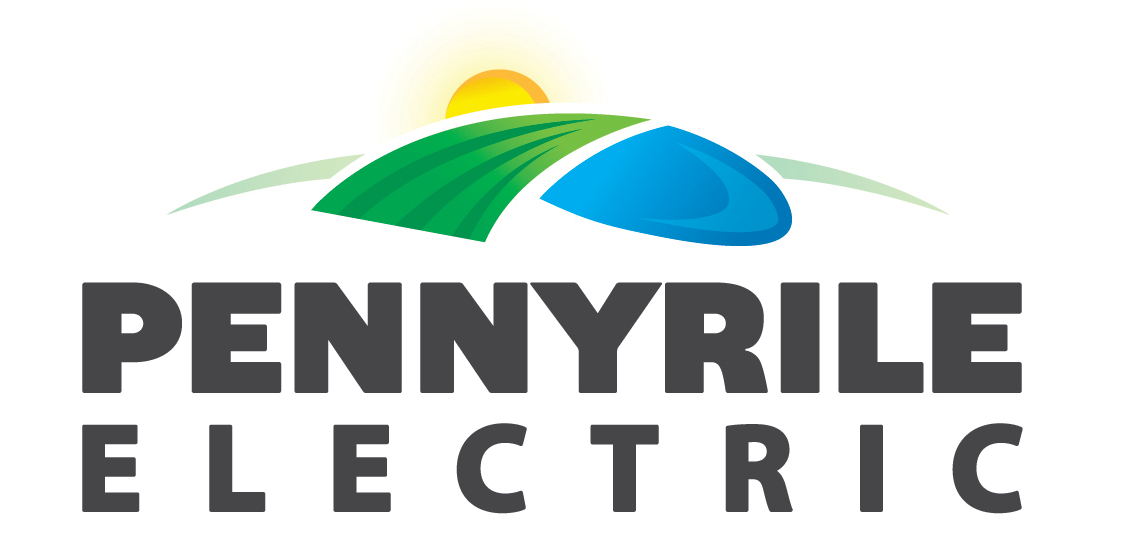
Line Inspections
In order to provide safe and reliable service, trees must not be allowed to come in contact with power or fiber lines. Pennyrile Electric inspects our rights-of-way throughout the entire service area to be certain all lines are clear of encroaching trees and are accessible for regular maintenance and emergency repair work. Pennyrile Electric inspectors and contractors are trained in the clearance requirements of specific lines. Through experience, they are knowledgeable in the growth patterns of various tree species. Potential hazards, such as a young tree that will grow into the power lines, are addressed before they become a problem.
Why We Prune Trees
Trees are one of the leading causes of electrical power outages. Pruning trees is a key part of providing safe and reliable electric service. A single limb that comes into contact with a power line can blink lights or cause an outage. A dangerous and sometimes deadly situation arises when trees grow too close to power lines. A child or someone in a tree that comes in contact with a power line could be seriously injured or even killed.
Tree Removals
Unfortunately, diseases, poor soil support, or storms may damage a tree enough to warrant removal. When trees are a threat to fall across power lines, or regrowth becomes an issue, a representative will contact you about removing the tree.
Service Drops
Service drops are the lines that run from the transformer to your meter. They carry a lower voltage than primary lines and have an insulated coating. During regular maintenance cycles crews will only need to trim limbs that are lying on or pushing against the line. If a member deems necessary to cut, or have trees cut, that are near service drops it will be the responsibility of the member. In the interest of safety, a member can schedule a crew to come out and turn off power and let the service wire down so tree or trees can be cut.
Why We Use Herbicides
Pennyrile Electric uses herbicides for improved efficiency and reliability. After the initial application, we only need to reenter the area every 5 years to selectively touch-up areas of dense or fast growing brush.
Are Herbicides Safe?
Yes. Pennyrile Electric only uses EPA approved products that have undergone years of testing. The herbicides are designed to work through enzymes found only in plants. They have the same active ingredients as herbicides you may be using yourself. All applicators are required to have a KY pesticide applicators license and must abide by the product label.
Why We Just Can’t Mow?
Although heavy growth sometimes requires mowing, there are several drawbacks. Mowing is an expensive and short-term solution to brush control. Rapid regrowth will often result in larger stem densities than present before mowing. Mowing also cuts good plants along with the undesirable brush. Applicators can target individual species with herbicides. Once herbicides are applied, future mowing usually isn’t necessary since low growing grasses will be established on the ground floor.
Storm Work
When severe weather strikes, Pennyrile Electric crews move swiftly to restore power. Trees are often the cause of downed power lines. If you see a downed power line, stay away from it and report the situation to Pennyrile Electric. We will do what is necessary to clear our facilities from downed trees. Since downed trees are an act of nature, the member will be responsible for the cleanup and removal of the tree(s) once Pennyrile Electric has removed any electrical hazard.
Landowner Rights and Responsibilities
Kentucky law requires public utility companies to provide adequate service to our members. To meet this obligation we must maintain our lines and keep them free from obstructions. When possible Pennyrile Electric will contact the landowners and notify them of our intentions. If there is an immediate threat to safety or electrical service we may enter the property and take corrective actions immediately. Notification and tree aesthetics are important to Pennyrile Electric and landowners; however, public welfare is our first priority.
Contact Us
Your comments are important to us. If you have any comments or questions concerning our right-of-way program please contact us at 270-886-2555.
